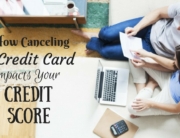RP Funding CEO discusses tricks used by Credit Card Companies.
“We’re going to fight back. We’re going to take control back as consumers. And that’s the whole point of the rules here on the show.”
(Transcription of Show)
Today, Rob, I want to talk a lot about the tricks. I want to cover our “if you know their tricks, they don’t work” rule, and we’re going to talk a lot about tricks that financial services companies use. Tricks that credit card companies, banks, mortgage companies, all the tricks. Because as all my financial ninjas know, if you know the tricks, they just don’t work. And we’re going to talk about each trick and how being aware of the trick can help you avoid it and really even turn the tables on them. I mean, that’s a lot of what we’re trying to do here, right? We’re going to fight back. We’re going to take control back as consumers. And that’s the whole point of the rules here on the show.
That’s the whole point of me coming on the radio every day. Hey, I’m going to tell you, knowledge is power, and it’s something that the industry is not used to. Credit companies and banks and mortgage companies, I mean, none of these guys are used to consumers being savvy and shopping around. I mean, Rule #1 (Shop Around) is by far the most important, make sure to read posts like this and review websites like cleo.com.sg to gather as much information as possible to help you make an informed decision. Today we’re going to focus on the tricks.
Knowing the Trick
That’s Rule #5!
Yeah, so Rule #5 is, if you know there are tricks, they don’t work. So we’re going to talk about that today. Hey, this was probably one of the first big topics I ever covered on the show, years ago.
And what I likened it to is when you have a magician performing on stage, right? And it’s all about misdirection, it’s all about distraction. They will bring out the lovely assistant, so that you’re looking at her, and she’s usually not wearing a full outfit, so that your eyes are drawn to her.
Don’t Fall Into ‘The Smoke and Mirrors Trap’
There will be some type of explosion offstage to the right. There’s always some type of misdirection, right? This is the whole idea of smoke and mirrors. The financial services industry learned from this.
They learned that if they can distract us, if they can get us to look over here and then sell us something harmful or not competitive over here, that’s the whole game plan. That’s how these tricks work. So that’s the whole idea of misdirection.
And so one of the first examples of misdirection I ever used is people signing up for credit cards in line at department stores. Right?
Understanding Department Store Credit Cards
And so here’s how this works. And here’s what I will tell you. As we know, if you know the tricks, they don’t work. So I’m not going to tell you should never sign up for a department store credit card. Right?
I’m going to tell you that you should understand why they’re trying to get you to sign up there on the spot. I’m also going to remind you about Rule #3, which says you have to go home and think about it for three days, which will keep you from making a decision right there on the spot.
But, if after three days of thinking about it, if you’re confident in the fact that you can take advantage of the discount, and if there’s no annual fee, and if you know that you’re not buying more than you can afford, and you can pay that card off completely before any interest starts to accrue– that means you’re going to pay it off during the grace period– well, then there’s no downside, right? We knew their trick. We beat their trick. We won.
Why Consumers Become Victims
Now, most people don’t do this. Most people fall victim to the trick, and that’s why they do it. So here’s how this works. A lot of these cards, a lot of these cards that are issued in department stores are offered by big banks. And what will happen is if you went directly to that big bank, you will get a much better deal.
And the reason is, they know you’re shopping around. Right? If you’re online looking for credit cards, what are you doing? I mean, just naturally, if you’re online, and you’re looking around for credit cards, you’re going to be looking for things like what’s the APR? What’s the annual fee? How long is the grace period? What are the perks on this card? You’re in shopping mode, right? You’re in the zone. You have made a conscious decision that you’re going to go out and get a new credit card.
So you are focused. You are thinking about it. You are comparing. You are weighing options. You are paying attention. You are fully awake and alert and doing this. And they don’t like that.
They don’t like the whole concept of that. They don’t want to have to be competitive on their interest rates. They don’t want you looking at other things. They don’t want you doing rule number one. They don’t want you shopping around.
And so what they figured out is one of the ways to get people to stop shopping around is to offer them the card when they’re not really expecting it. It’s like a sneak attack. And so here you are in line at a department store, and you’re just trying to check out. And maybe your kid is there with you, and they’re ready to go, so they’re tugging on your hand.
You’ve got an angry mob of people behind you that are ready to check out and get out of there as well, because there’s only one register open, and there’s 38 people trying to check out, and there’s 10 registers with no clerk at them. So everyone’s frustration levels are at maximum height. And just as your last item gets rung up, the clerk looks at you and says, oh, would you like to apply for a store credit card today and save 20%?
And now, here you are. And you’re thinking, well, 20%, I mean, I could save some money here today. Great. This is like that whole Vegas wasn’t built on winners. If there was truly a 20% savings with no downside, they would not offer it to you.
They’re going to make their money back on the interest. They’re going to make their money back, because you’re probably going to spend more in their store. The interest rates on these cards are usually substantially higher than what they should be.
Again, if you pay them off before the grace period every time, it doesn’t really matter. There is some effect on your credit. But here’s my point. Most people then don’t turn around and say, well, what’s the APR? What’s the annual fee? No one.
And if you do, it’s a disaster. Because now the poor clerk has to try to rumble up the brochure for the credit cards so she can figure it out with you, because she has no idea, because no one has ever asked her before. You’re the first person to ever ask about the interest rate or the APR, and you’ve got the angry mob behind you. And then they want you to give out your name and your birth date and your social security number and all this stuff standing in line at a department store.
The whole point to all this is it’s putting you in a situation. It’s putting you in an environment where you are less likely to shop around, where you are less likely to pay attention, where you are less likely to ask questions. Oh, we don’t like it when people ask questions. And you’re more likely to just take whatever they’re offering you.
Now again, if you recognize this is a trick, if you recognize the fact that this credit card is going to carry a higher interest rate than a normal credit card you can get from a bank, if you recognize that fact, and you understand the trick, you understand that they’re trying to get you to sign up when you’re off kilt, they’re trying to get you not be paying attention.
Because see, what happens is if you never ask what that rate is, you may never know. You may think it’s a good card. You may use that card every time you go shopping in there. You may think it’s OK to keep a balance on that card, because you never asked about the interest rate.
The Trick of Confusing the Consumer
And in one of our next tricks we’re going to talk about, they figured out how to get statements to you online without interest rates on them. It’s all just to cloud the waters and confuse us and keep us from having knowledge, because knowledge is power. So that’s the trick.
And what they figured out is that by doing this, people will take these credit cards with much higher interest rates, which turns into more profit. People then spend more money at the store, because they have that credit, and they have that in their wallet. And then they’re going to, a lot of times, not pay it off, because what happens is because people have the available credit, they now start to purchase things they cannot afford.
They’re trying to trick us into buying things we can’t afford. They are trying to trick us into taking a credit card with an above market interest rate. They’re trying to trick us into making a decision without fully thinking about it and letting them pull our credit and apply for this credit card.
And so if we understand those three tricks, and we refuse to be a victim of those three tricks, if we refuse to spend more than we can afford, if we refuse to let our shopping habits change just because we have this store credit card, if we refuse to leave a balance on this credit card, because we recognize that it’s a higher interest rate and we’ve really got to be disciplined and dedicated to the idea that hey, I’m going to save 20% today.
But if I mess up and leave a balance on here, they’re going to take that 20% right back from me in the form of interest. These are the tricks. So if we understand them, if we are financial ninjas, if we are aware, if we were alert, if we are on our game, if we are paying attention, the tricks will not work.
We see tens of thousands of credit reports every year at RP Funding from consumers trying to purchase a home and we see this reality all the time.
Don’t Let Grace Periods and Interest Charges Sneak Up on You
And there are ways you can use these department store cards to your benefit. I mean, sure, take the 20% off. Make sure you pay the thing off. But again, I really, I want you to follow Rule #3 as well.
There will be another day when you are in that store and you are racking up a nice big bill and you can pay it off. Because what may happen is what if that particular card has an annual fee? Now you can wipe out your entire savings. What if that particular card doesn’t have a grace period? What if interest actually starts accruing the minute the charge hits?
You could– by the time you get the bill in the mail, you’ve already racked up interest charges, right? Not all cards have to have a grace period. The grace period is actually leftover from the days when people had just store credit.
Before credit cards, before credit reports, you would go down to the hardware store, and they would run a store credit for you, and you would pay it once a month. And so the idea is that the merchants back then, the store owners, it was too difficult to try calculate all the interest. And so they said, hey, as long as you pay me by the first of next month, then there won’t be any interest.
And that’s where the whole concept of the grace period came from. And that’s what the grace period is a holdover from is back when it was too difficult for merchants to calculate the individual days of interest. You know, well, the hammer was on there for four days, and the garden hose they bought was on there for nine days. It was just too complicated to try to calculate the interest.
Well, today, we obviously have very sophisticated computers. Calculating interest is no problem at all, but the whole concept of the grace period has remained from those days. But not all credit cards have a grace period. There is a rule that if you’re going to offer a grace period, it has to last for at least 21 days.
But there is no requirement that there has to be a grace period. And so what some of these department stores will do is they will either add an annual fee, or they will not have a grace period. And so again, this is why we have to do our homework.
We can’t just make a decision on the spot. Saving 20% may sound like a bargain. Getting $20 off, whatever it is, $50 off, may sound great. But until you take the time to do the research and check out the card and figure out what you’re getting into, you could be falling victim to one of their tricks.
Don’t Give Into Pressure
And so again, the main trick here is that they’ve got you in a situation where it’s not easy to shop. It’s not easy to ask questions. I mean, you can’t even figure out– the clerk can’t tell you what the APR is, the annual percentage rate, much less whether or not there’s a grace period.
I mean, then they would be reading the fine print in the brochure for 30 minutes to try to figure this out, and meanwhile, you’ve got the angry mob of shoppers behind you. And all this is created to put pressure on you to give a quick yes.
If you walk out of the store, you lose the opportunity to save 20%. Like you’re never going to be there again. Like this is the only time in your life you’re going to have a large purchase at this store. Probably not. So they use pressure, scarcity. Hey, if you don’t sign up right now for this car, you’re going to miss out on 20% in savings. That’s $100. That’s whatever it is. That’s $50. That’s $60. That’s $100. So there’s a scarcity and urgency there.
They make you feel like if you don’t sign up right then, you’re going to miss out on some great deal, when deep down, we all know that they’re going to offer you the same deal the next 50 times you come into the store. The next thing is, there’s this undue pressure on you, because there’s a line of people behind you. You’ve got a clerk who doesn’t know anything about the terms and conditions of the card trying to sell it to you, and your kid probably tugging on you, wanting to get out of the store, and you just wanting to get your stuff and go.
And so by creating this whole chaotic environment where you’re not able to think and research and do the things you should do, they’re able to get away with charging higher rates, charging higher annual fees in some cases, not having grace periods. And all of that is built to make them more money at your expense. And that’s one trick.
That’s trick number one. That’s a trick we are absolutely going to have to avoid.
Robert Palmer is the CEO of RP Funding and a consumer advocate host of Saving Thousands Radio.





